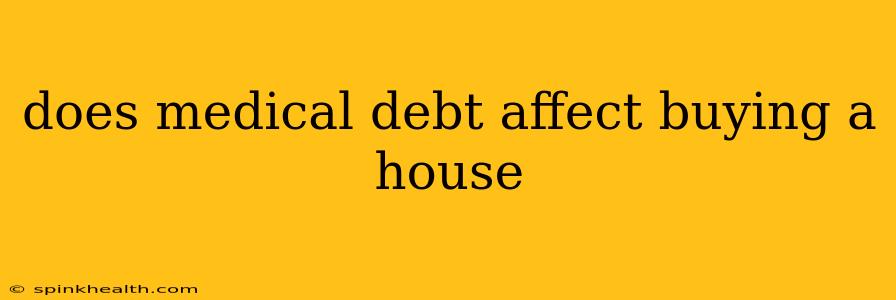Does Medical Debt Affect Buying a House? A Story of Financial Jitters and Homeownership Dreams
The aroma of freshly brewed coffee filled the air as Sarah scrolled through real estate listings, her heart pounding with a mix of excitement and anxiety. Finding the perfect house was only half the battle; the looming shadow of her medical debt cast a long, unsettling pall over her homeownership dreams. This wasn't just about finding a mortgage; it was about navigating a complex financial landscape where even seemingly unrelated debts could derail her plans.
Sarah's story, sadly, is far from unique. Many aspiring homeowners grapple with the question: does medical debt affect buying a house? The answer, unfortunately, is a nuanced yes. While medical debt itself doesn't automatically disqualify you from a mortgage, it significantly impacts your credit score, and that's where the real problem lies.
How Does Medical Debt Affect My Credit Score?
Medical debt is often the silent saboteur of good credit. Even small, unpaid medical bills can tank your credit score, making it harder to secure a mortgage at favorable interest rates – or even get approved at all. Lenders scrutinize your credit report rigorously, looking for consistent payment history and low debt-to-income ratios. A history of medical debt, even if it's been paid off, can leave a blemish on your record for years.
What is a Debt-to-Income Ratio (DTI)?
Your debt-to-income ratio (DTI) is a crucial factor lenders consider. This ratio compares your monthly debt payments (including medical debt payments, student loans, car payments, etc.) to your gross monthly income. A high DTI signifies a higher risk for the lender, as it suggests you might struggle to manage your finances and make your mortgage payments on time. Medical debt significantly contributes to this ratio, reducing your chances of approval.
Can I Still Buy a House with Medical Debt?
The good news is, it's not necessarily a death sentence for your homeownership dreams. However, proactive steps are essential. First, understand the extent of your medical debt. Review your credit report for accuracy and dispute any errors. Next, explore options like debt consolidation or medical debt settlement programs. These programs can help you negotiate lower payment amounts or even eliminate some of your debt. It's important to work with a reputable credit counseling agency to avoid scams.
How Can I Improve My Credit Score Before Applying for a Mortgage?
Improving your credit score before applying for a mortgage is vital. This requires consistent, on-time payments on all your debts, including medical debt (if you're actively paying it down). Paying down existing debts, especially credit card debt, can also significantly boost your score. Regularly monitor your credit report and take steps to address any negative marks. Consider consulting a financial advisor to create a personalized plan to improve your creditworthiness.
What are My Options if I Have High Medical Debt?
If you have substantial medical debt, consider exploring options beyond traditional mortgages. Some lenders specialize in working with borrowers who have less-than-perfect credit histories. They might offer higher interest rates but can still make homeownership possible. Additionally, government-backed loans like FHA loans often have more lenient credit requirements than conventional mortgages.
Does Medical Debt Affect My Mortgage Application Process?
Yes, medical debt significantly impacts your mortgage application process. Lenders will closely examine your credit report, looking for instances of late or missed payments. High medical debt can lead to rejection of your application or result in less favorable terms like higher interest rates and a larger down payment.
Sarah's journey, fraught with initial anxieties, ultimately led her to a successful mortgage application. By addressing her medical debt proactively, improving her credit score, and seeking professional financial guidance, she transformed her dream into a reality. While medical debt is a significant challenge, it doesn't have to be an insurmountable obstacle on the path to homeownership. With careful planning, determination, and the right advice, you too can achieve your dreams of owning a home.

